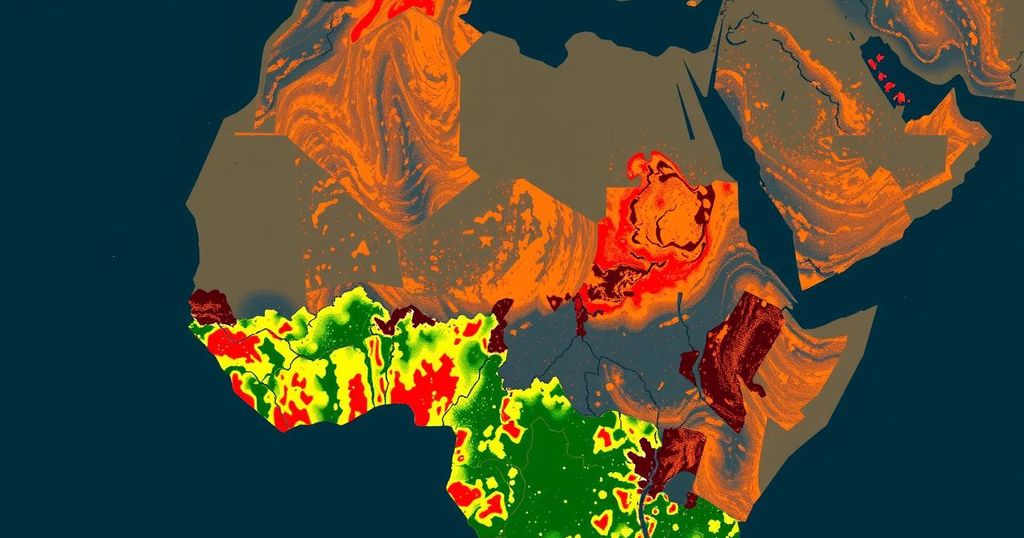The Climate, Peace and Security Fact Sheet highlights the intertwining issues of climate change and conflict in the Central African Republic, noting the country’s acute vulnerabilities due to governance failures, resource mismanagement, and a volatile security situation. Factors such as early pastoralist migration and the spillover effects of external conflicts further exacerbate the humanitarian crisis, signaling the urgent need for coordinated international intervention.
The Climate, Peace and Security Fact Sheet for the Central African Republic (CAR) outlines critical challenges arising from both climate change and ongoing insecurities that impair the country’s stability and development. CAR is particularly vulnerable due to a combination of socio-ecological factors and widespread conflict, with persistent issues such as ineffective governance, exploitation of natural resources, and low levels of resilience within households and communities. Although there has been some stabilization in the security environment, the situation remains precarious as various factions—including elements of the Coalition of Patriots for Change (CPC), self-defense groups, and criminal elements—continue to engage in skirmishes against government forces and their allies, including foreign mercenaries from the Wagner Group. Furthermore, the effects of climate change, in conjunction with instability in neighboring regions, have aggravated conditions by prompting pastoralists to migrate earlier into CAR territory, generating further disputes over resources. The conflict in Sudan has also exacerbated humanitarian challenges, particularly in the Vakaga and Haute-Kotto prefectures. Overall, targeted international actions are essential to mitigate these intertwined crises effectively.
The context for the Climate, Peace and Security Fact Sheet for CAR is predicated on the significant challenges the country faces as a result of both climatic and socio-political factors. CAR’s geographical and social landscape renders it particularly susceptible to the adverse effects of climate change, further complicated by systemic weaknesses in governance and a fragmented security situation. Natural resource mismanagement and the socio-economic vulnerability of communities contribute to the complex fabric of insecurity that characterizes the region. With ongoing conflicts not only driven by local issues but also shaped by external pressures, such as the conflict in Sudan, the situation in CAR demands urgent and coordinated international attention.
In conclusion, the interconnectedness of climate-related challenges and security concerns in the Central African Republic necessitates a multifaceted response from the international community. Addressing the vulnerabilities that stem from both environmental changes and internal conflicts is paramount for fostering stability and resilience within the country. Without strategic and immediate actions, the prospects for peace and sustainable development within CAR remain bleak.
Original Source: reliefweb.int







